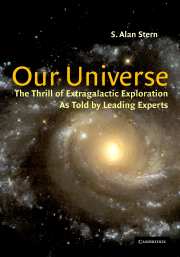Preface
Published online by Cambridge University Press: 03 September 2009
Summary
Modern human civilization now stretches back almost 300 generations to the earliest organized cities. For most of that time, each clutch of humans identified their settlement and its surrounds as their home. Less than 100 generations ago, information transmission and transportation technologies were capable enough for people to form nationstates consisting of many cities and villages and consider them as a new kind of “home.” In the last two generations—with the advent of space travel—many people have come to see their “home” as the whole of the Earth. This is an idea that would have been unthinkable to the ancients—for the world was too large for their technology to integrate the world, or even a nation-state, into an accessible and cohesive community.
So too, though it may not be hard in the future, it is hard for us, now, to think of our “home” as being something larger than our planet. After all, we are still trapped, both physically and to a very great degree intellectually, on our wonderful home, this planet, Earth. A century ago, Konstantine Tsiolkovsky, the great Russian space visionary, described the Earth as the cradle of mankind, saying that humankind, like any infant, cannot live in its cradle forever.
- Type
- Chapter
- Information
- Our UniverseThe Thrill of Extragalactic Exploration, pp. vii - viiiPublisher: Cambridge University PressPrint publication year: 2001



